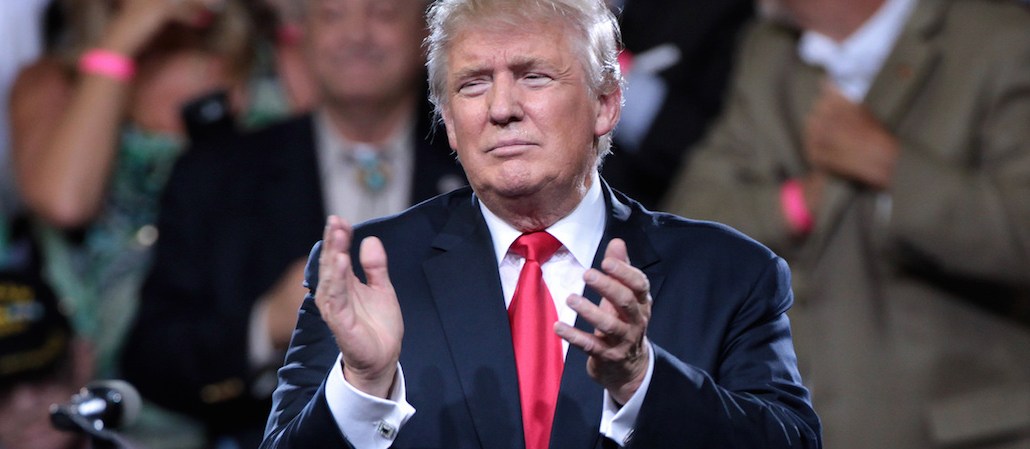Last chance to save on Digiday Publishing Summit passes is February 9

When Donald Trump takes his oath of office today, it will partly be thanks to the backing of Chevron, AT&T and Boeing, just to name a few. These brands are among his most prolific corporate donors, having contributed anywhere between $25,000 and a $1 million toward the inauguration and inauguration-related events.
Trump is a highly polarizing figure, a lesson that brands like New Balance, Boeing and L.L. Bean have learned in recent months. In that context, making donations amounting to thousands and millions of dollars may seem like committing brand suicide. But that may not necessarily be the case, say marketing experts.
“For a lot of these brands, it’s a very calculated risk that they’re making considering their businesses and shareholders, and the benefit far outweighs the cost,” said Andrew Gilman, chief executive of the crisis communications firm CommCore Consulting Group. “If you’re a big contractor engaged in business with the government, supporting the government will ultimately work in your favor.”
Irrespective of which party controls the White House, corporations have routinely opened their checkbooks every four years, as The New York Times reported earlier this week. And administrations, in return, have rewarded their donors with a range of perks, not in the least bit limited to private events and other incentives.
It’s just good business, according to Max Lenderman, founder and CEO at purpose marketing agency School. Perhaps that explains why companies that were earlier hesitant to support him have come around now. UPS and JPMorgan Chase, for example, declined to directly sponsor the Republican National Convention last summer but are contributing to the inauguration fund-raising now.
“These are all gigantic corporations that understand how much lobbying it takes to create policies that are beneficial to them, for them it’s less about marketing and more about business,” he said. “They don’t care if their brand value takes a momentary hit if they ultimately get to drill pipelines in Russia and add a few more million dollars to their bottom line.”
Then, there’s also the fear of genuine backlash from Trump himself, who has not been shy about lashing out at brands. Shares of General Motors and Lockheed Martin have dropped in response to critical tweets from Trump. And when Tom Ford commented saying he would not dress the incoming First Lady, Melania Trump, he faced not only Trump’s wrath but was also ousted from the Wynn Las Vegas, when the hotel removed his line of cosmetics and sunglasses from its retail locations.
Consumers, though, seem to be cutting brands some slack, at least for now. According to analysis by marketing technology company Amobee, there hasn’t been the same level of backlash against these brands as compared with inaugural performers like the Rockettes. According to Amobee, a brand’s association with the inauguration or with Donald Trump may not inherently be a problem, depending on its consumer base. Boeing, for instance, is largely dependent on government contracts, so sponsoring the inauguration is in-line with speaking to its client base. Between Dec. 19, 2016, and Jan. 19, 2017, 23,000 tweets in the U.S. mentioned both Boeing and Trump, with sentiment around them being mostly neutral (72 percent) and positive (22 percent).
Nevertheless, brands should caution against becoming overly political, said Robert Passikoff, founder and president of brand and research consultancy Brand Keys. And consumer brands, in particular, hardly get a free pass in an age where collective outrage thrives online.
Numbers crunched by data firm Affinio, for example, found that a wide variety of “interests” are tweeting about boycotting the inauguration — which is exactly the kind of audience brands risk alienating by advertising around it. What’s more, a big chunk of those talking about “brands and the inauguration” are Democratic activists, Democrats in the tech industry and protesters — a large number of customers brands risk alienating.
“If brands are going to jump into it, they need to choose the messages wisely and be proactive in responding to both positive and negative feedback,” said Scott Linzer, vp of owned media at agency iCrossing. “If they must do it, the message should be focused on unification, inclusivity and plurality, and most of all, come from an authentic place.”
More in Marketing

‘Our marketing is not a bullshit machine’: Why Perplexity is investing in targeted, organic growth
Perplexity is banking on its name carrying weight to keep current users engaged and attract new ones

As AI catches on across luxury, brands play up their emotional value
At Shoptalk Luxe, vendors and brands alike described deeper AI integration than ever before.

Future of Marketing Briefing: Advertising’s tracking system meets a new political reality
The privacy debate in advertising is entering a phase when decisions will stick.








